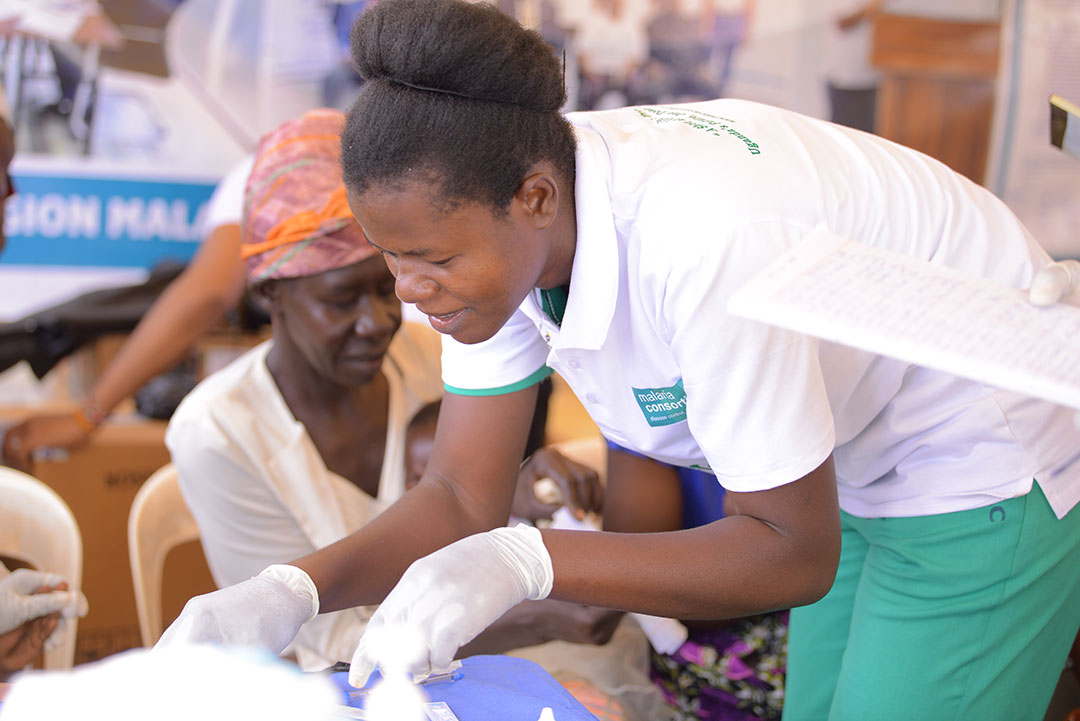Why is trust in healthcare waning and what can be done about it?
Discover why health leaders from across the WHO European Region are at the Health Systems Conference focusing on trust and transformation in healthcare.
- 2 January 2024
- 5 min read
- by World Economic Forum

Mira from Kyrgyzstan has been living with diabetes for nearly 40 years.
She remembers a time when diabetes instilled fear in her. Back then, diabetes could only be managed by a highly specialized endocrinologist. This led to long waiting times, expensive consultations and treatments and often long distances to travel. Now, Mira can go directly to her primary care centre to help manage her diabetes. She is more confident in her family doctor and less afraid of diabetes. She is empowered to be an active participant in her care. In short, her relationship with the health system is underpinned by trust. Yet, increasingly, trust is in short supply.
The COVID-19 pandemic left many people across the European Region lacking confidence in their healthcare providers. But even before the pandemic, trust between patients, health workers and government was eroding for multiple reasons, including a lack of clear and transparent communication and the spread of misinformation. The pandemic only made matters worse.
Health and care workers are also grappling with a loss of trust. They no longer feel valued or supported by the systems they serve. Many are experiencing burnout and stress of unimaginable proportions. This loss of trust further undermines our efforts to attract young people into this crucial field.
Equally concerning is the growing trust deficit between policymakers and their health systems. Politicians lack confidence in their health system's ability to adapt to meet people's changing health needs, such as responding to a rapidly ageing population or adopting new digital tools. At the same time, health workers are increasingly disillusioned by the politicization of health, exemplified by the COVID-19 pandemic. This scepticism hampers the prospects for meaningful reform and transformative progress within our health systems.
Patients have to trust the health system and their health and care professionals, who, in turn, must trust that policymakers are genuinely looking out for them. In short, trust underpins transformation.
Trust and transformation
That's why we have gathered health leaders from across the WHO European Region for the 15th anniversary Health Systems Conference in Tallinn, Estonia, guided by the themes of trust and transformation.
When they signed the Tallinn Charter in 2008, every country in the WHO European Region committed to distributing the burden of financing the health system fairly so that people aren't impoverished due to using health services. Fifteen years later, universal health coverage remains unattained across the region. Globally, 4.5 billion people – more than half of humanity – don't have access to essential health services.
A new report from WHO/Europe shows that in 2019, before the pandemic, on average, 6% of households across 40 countries in the European Region were pushed into poverty because of healthcare costs. When looking at the poorest fifth of the population, a staggering one in five households face catastrophic health spending, which is when a family can no longer afford to meet basic needs – food, housing and heating – because of having to pay out of pocket for health care.
The pandemic aggravated the situation for many, creating huge backlogs, forcing people to pay for private healthcare and medicines or simply creating insurmountable barriers to access, leading to negative health outcomes.
Universal healthcare is not yet obtainable
Accessible or affordable healthcare is out of reach for millions in the European Region. Many face excruciating choices, such as paying for medicines or treatment at the expense of paying for food or electricity, which further erodes trust that the health system is there for you when you need it. We simply can't allow healthcare costs to impoverish millions of families.
Have you read?
WHO/Europe and the Estonian Ministry of Social Affairs together urge countries to act with courage and conviction to urgently address the growing trust deficit in and within our health systems.
There are many ways to do this, from greater transparency and accountability, more collaborative decision-making involving patients in their care, more community engagement, digital solutions to improve performance, and significantly greater investment in the health and care workforce.
But it starts with the patient and our quest for universal health coverage, a mission that remains largely unaccomplished.
We urge countries to implement several 'best practices' to move closer to universal health coverage and thereby help rebuild the trust that is so desperately needed to transform our health systems. These include extending healthcare coverage to all people regardless of their legal status, ensuring primary care coverage includes treatment, not just consultation and diagnosis, and applying healthcare charges sparingly, and in the case of people on low incomes or with chronic conditions, not at all.
Introducing the Health Systems Performance Assessment Framework
WHO/Europe has recently updated a vital tool for health leaders and decision makers – known as the Health Systems Performance Assessment Framework – which provides a map of where change is needed, what good performance looks like and what the impacts of new innovations – mainly digital – will be. It is a practical tool for building resilience in our health systems.
Resilience – or the capacity to adapt and absorb shocks – is essential in today's world of perma-crises. For efficient and fit-for-purpose healthcare, we need resilient people, resilient health leadership and resilient health systems.
For Mira, trust is the cornerstone of her diabetes management, a partnership founded on mutual respect and understanding between patient and health worker, underpinned by a health system that is supportive and inclusive. "I am in constant contact with my endocrinologist, I call her all the time," she shares, emphasizing the bond they share. "We talk, we sit, she explains everything to me."
As we celebrate the progress made over the years, it is crucial to acknowledge the areas where trust has been strained and take deliberate steps to mend those bonds. And this transformation should by bottom-up, with patients and health workers the protagonists and agents of change. By prioritizing trust, we can transform our health systems into resilient, patient-centred, and community-driven entities that truly prioritize the health and well-being of everyone.
After all, trust is what holds our societies – and health systems – together. We lose it at our peril.
Written by
Hans Kluge, Regional Director, Europe, World Health Organization (WHO)
Riina Sikkut , Minister of Health, Estonia
Website
This article was originally published by the World Economic Forum on 12 December 2023.









